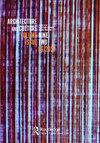Forms of (Collective) Life: The Ontoethics of Inhabitation
IF 1.8
0 ARCHITECTURE
引用次数: 1
Abstract
Abstract Is there space for an ontological urban design? Or better still, following the words of Elisabeth Grosz, is there space for an “ontoethics” of the urban? While contributing to the reflection on the role of ethics as a relational practice, this paper is digging back into the notion of forms-of-life in Giorgio Agamben’s political reflections, aiming to foreground a possible ethics of the city. This aims to highlight the implications that ontology and ethics have in constructing a politics of life as they bring differences in how we live, act, what we value and how we produce and design. Particularly, to substantiate such ethics, three key characteristics of an affirmative life are put forward: the capacity to care and to connect; the capacity to repair, endure and hold together; as well as to imagine and experiment alternative life-forces to oppose politics of oppression and capitalist extraction of values.(集体)生活的形式:居住的本体论
存在本体论城市设计的空间吗?或者更好的是,按照伊丽莎白·格罗斯的话,城市的“个体伦理学”还有空间吗?在对伦理作为关系实践的作用进行反思的同时,本文对乔治·阿甘本政治反思中的生命形式概念进行了挖掘,旨在展望一种可能的城市伦理。这旨在强调本体论和伦理学在构建生活政治中的意义,因为它们带来了我们如何生活、行为、价值观以及我们如何生产和设计的差异。特别是,为了证实这种伦理,提出了平权生活的三个关键特征:关心和联系的能力;修复、忍耐和团结的能力;以及想象和实验另类生活力量,以反对压迫政治和资本主义价值观的提取。
本文章由计算机程序翻译,如有差异,请以英文原文为准。
求助全文
约1分钟内获得全文
求助全文
来源期刊

Architecture and Culture
ARCHITECTURE-
CiteScore
0.80
自引率
0.00%
发文量
25
期刊介绍:
Architecture and Culture, the international award winning, peer-reviewed journal of the Architectural Humanities Research Association, investigates the relationship between architecture and the culture that shapes and is shaped by it. Whether culture is understood extensively, as shared experience of everyday life, or in terms of the rules and habits of different disciplinary practices, Architecture and Culture asks how architecture participates in and engages with it – and how both culture and architecture might be reciprocally transformed. Architecture and Culture publishes exploratory research that is purposively imaginative, rigorously speculative, visually and verbally stimulating. From architects, artists and urban designers, film-makers, animators and poets, from historians of culture and architecture, from geographers, anthropologists and other social scientists, from thinkers and writers of all kinds, established and new, it solicits essays, critical reviews, interviews, fictional narratives in both images and words, art and building projects, and design hypotheses. Architecture and Culture aims to promote a conversation between all those who are curious about what architecture might be and what it can do.
 求助内容:
求助内容: 应助结果提醒方式:
应助结果提醒方式:


